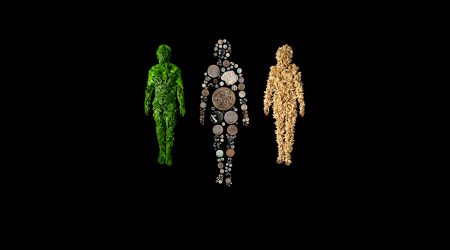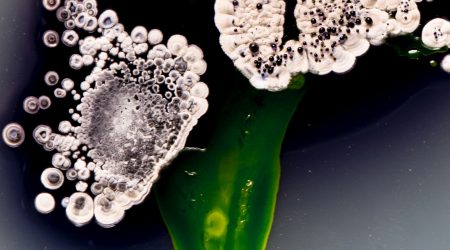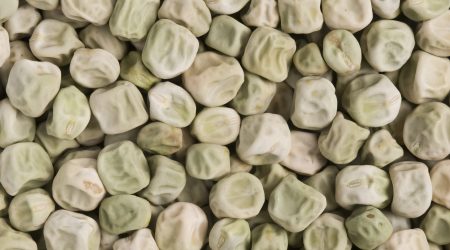As part of our Healthy Plants, Healthy People, Healthy Planet (HP3) vision we continue to develop and support our inclusive, supportive and diverse community of staff and students
The step-change needed to realise our vision to find science-based solutions to overcome pressing global challenges encompasses new ways of ways of working, new collaborations and the innovative application of our knowledge of plants and microbes.
When we take a deeper look at this vision, we see that the potential to meet and overcome challenges like climate change, feeding the world and safeguarding human health relies on creating and nurturing talent, and providing those people with a safe, open, inclusive and welcoming research environment.
Dr Carole Thomas, Head of the Directorate and lead on our Equality, Diversity and Inclusion work explains the ethos:
Continuing, “It’s critical that we provide a research environment, where everyone feels respected, valued and listened to. This is important for wellbeing and mental health and enabling individuals to reach their full potential.”
As Chair of the Inclusivity & Diversity (I&D) Committee, and more broadly in her role at the John Innes Centre, Carole really is ‘the eyes and ears’ of the Institute. Her door is always open, even if during the pandemic it is a virtual door.
She says, “People know they can drop in if they want to talk. Often those casual conversations are used to seed new ideas and initiatives aimed at improving and enhancing the working environment to create an environment where everyone can bring their authentic self to work.”
When asked what drives her Carole says, “I am emotionally invested in the John Innes Centre. I believe it is a fantastic place to work and want to do everything I can to ensure it stays that way and inspires the next generation of scientists.
“As Head of the Directorate I work very closely with the Director, Dale Sanders. The Director is a member of the I&D committee, demonstrating his commitment to the Equality, Diversity and Inclusion agenda. Our close working relationship ensures a high level of awareness of the needs of individuals and the Institute in this area, and full support from the top when working on new initiatives.”
In March 2019 the John Innes Centre initiated a Wellbeing and Mental Health group to raise awareness, understanding and engagement with these issues, and works to promote and develop on-site resources. Carmel O’Neill, co-lead of this group explains,
Other working groups within the John Innes Centre or across the four Norwich bioscience research institutes include Parent and Carers, Race and Ethnicity Equality and Diversity, Accessibility and LGBT+.
These are all active groups run by passionate people and have representation on the I&D committee which reports into the Strategy Committee, the highest decision-making committee at the John Innes Centre.
Carole’s dedication to developing the culture is tireless and unwavering. Her work, along with contributions from many others, resulted in the Institute receiving one of the first Athena SWAN Gold Awards in 2017.
When asked what one thing she would like to be remembered for she says, “The Norwich Research Park on-site nursery. This is something I championed and campaigned for over many years. It makes a huge difference to parents having an easily accessible on-site nursery.”
Representation and communication are important for ensuring the institute is inclusive and open to change. Groups called ‘Voices’ represent students and staff across all levels and roles, and play a key part in the culture. The Voices give students and staff a voice through representation on committees, and also provide a support network.
Where possible, structures like the Wellbeing and Mental Health group, and other committees, include representation from across the institute. There is an importance placed on ensuring everyone’s voice is heard and that everyone’s contributions are valued. Initiatives are evaluated and evolved in response to feedback from all of the John Innes Centre’s communities.
This approach means that the culture is constantly evolving, becoming more inclusive The Wellbeing and Mental Health group resulting in a workplace that is a healthy, diverse place to be. However, we are not complacent and we recognise that there is still room for improvement.
This is where initiatives like the Wellbeing and Mental Health group can play a really important role in working towards making sure that people feel valued, respected and remain happy at work.
The Wellbeing and Mental Health group
Formed in March 2019 the group aims to raise awareness, understanding and engagement of wellbeing and mental health issues, and works to promote and develop on site resources.
Research Assistant, Dr Carmel O’Neill and Administrator, Mrs Samantha Lingwood co-lead this group, with representation from across the institute, at all levels, and in all roles from students to Group Leaders, support staff to scientists.
Immediately the group set about improving the information available to staff and to identify any areas where there needed to be improved provision. One of their first initiatives was to train Mental Health First Aiders, an important and necessary requirement in a workplace.
The group also runs events, including ‘Time to Talk’ sessions which provide a safe space within the John Innes Centre to discuss wellbeing and mental health, or just to have a chat. These sessions are an opportunity to highlight the broad range of support available to those who might need it.
This summer, the August Activity Challenge (cycling, walking, running) and a photography competition brought people together virtually and encouraged staff and students to make time for themselves and each other during a stressful year.
Dr Kelsey Byers took part and commented, “I started at the John Innes Centre as a Group Leader in August. Moving to a new city, and having to self-isolate the Activity Challenge gave me a way to be involved, at least a little bit. During those first two weeks it seemed like a good way to get myself out of the house, as well as a way to keep track of how many miles I had covered in my new wheelchair. I was not previously a wheelchair user and wanted to build up my arm strength. That sense of community was helpful, and knowing others were out there pushing themselves was good motivation.”





